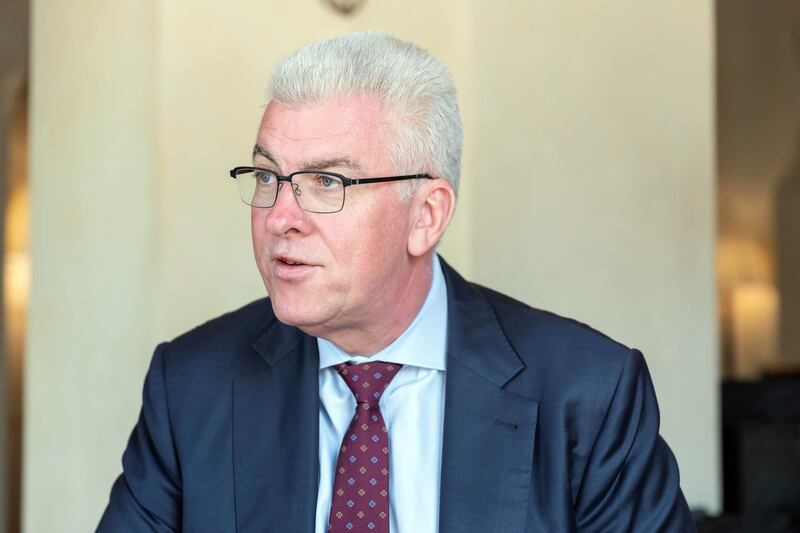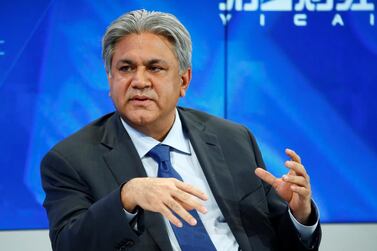Dubai’s financial services regulator took “appropriate” measures against collapsed private equity company Abraaj Group, but communication was lacking and there needs to be tighter scrutiny of high-risk entities, the regulator's chief executive said.
"I think the actions we took were appropriate, but one of our lessons learnt is to better communicate our actions to the market, to address public concerns," Bryan Stirewalt, chief executive of the Dubai Financial Services Authority, told The National, in his first interview to address market concerns over the Abraaj scandal.
The DFSA, which regulates 500 companies registered at the Dubai International Financial Centre free zone, is preparing to introduce tougher policies with regard to corporate transparency and risk management.
Any company that fails to satisfy the toughened controls could be struck out or forced to amend their business model, said Mr Stirewalt, who took the helm last October amid the high-profile Abraaj debacle.
“There are a lot of firms who now have a communications strategy to their stakeholders that explains exactly how they are not like Abraaj,” he added. “If this results in overall strengthening of systems, controls and governance in the region or globally, that’s a positive outcome.”
Abraaj, once the biggest buyout company in the Middle East with about $14 billion (Dh15.41bn) of assets under management, started to unravel last February, when four investors in its $1bn healthcare fund alleged mismanagement of funds and hired consultants to investigate the matter.
The company is currently in provisional liquidation, working to pay down an estimated $1bn of debt. Investigators are trying to locate investors’ money, with reports of co-mingling funds – taking money allocated for a particular purpose and using it elsewhere – to help Abraaj plug its cash-flow needs.
Abraaj and its founder, Arif Naqvi, have denied any wrongdoing.
The private equity company operated from offices in 20 markets across the world, including the DIFC, where an entity called Abraaj Capital Limited was listed. Six months after the news broke, DIFC Courts appointed liquidators to wind up ACL and stopped the company from initiating new work or moving money to other entities.
The DFSA is also leading an investigation into Abraaj’s activities in the UAE and beyond. Mr Stirewalt said he is hopeful it will conclude “within a reasonable time frame”, and that a report of the findings will be made public afterwards.
In his preface to the DFSA’s 2019-20 business plan in March, Mr Stirewalt said the regulator would “review its risk-based approach to supervision, to ensure that it properly captures some of the features of the particular case”.
Each of Abraaj's offices were subject to the rules governing its respective jurisdiction, and the DFSA had little power to take action against Abraaj entities other than ACL.
However, to address this complex regulatory challenge, the DFSA from this year plans to ramp up supervision of foreign legal entities of Dubai companies and those that manage assets overseas. "We'll look much more closely at where the ultimate fund manager is located and at the global governance model behind every firm," he told The National.
“We have to consider what the strengths of other regulators [across the world] are. If the fund manager is sitting in a jurisdiction where we can trust the regulator, we can work with that business model, but if a regulator does not match our expectations, we have to force a change in the business model of the firm in question,” he added.
Tighter scrutiny will take place both in terms of due diligence conducted before the company is registered at the DIFC and through increased monitoring of ongoing operations.
The DFSA will also consider the type of financial activity companies undertake. A particularly high-risk company is a deposit-taking institution, Mr Stirewalt said, because investors have placed money in that company and expect it to be repaid in full. This is in contrast to equity investment, where there is an assumption that managers and investors are both aware the value could go up or down.
The DFSA plans to work with the Central Bank of the UAE and other regulators to improve financial literacy. “Protection of client assets and ensuring suitability of products and services for certain clients is a priority this year,” he said.







